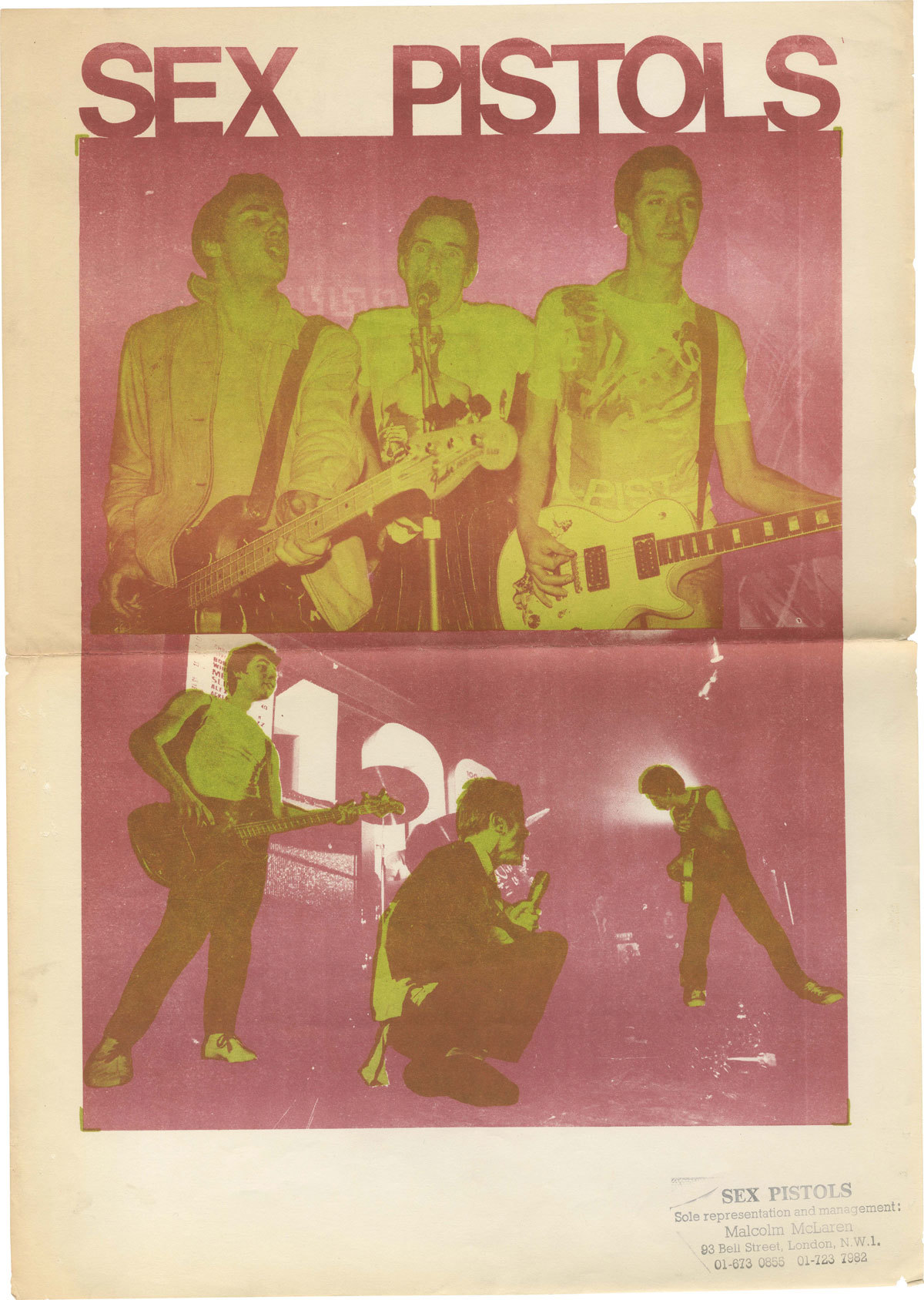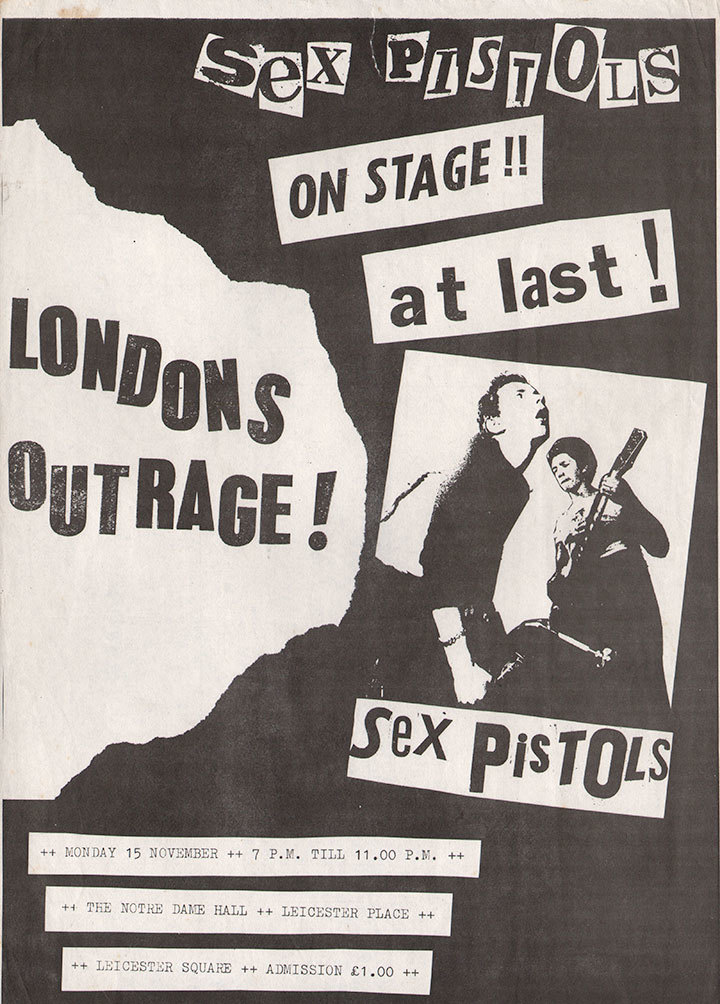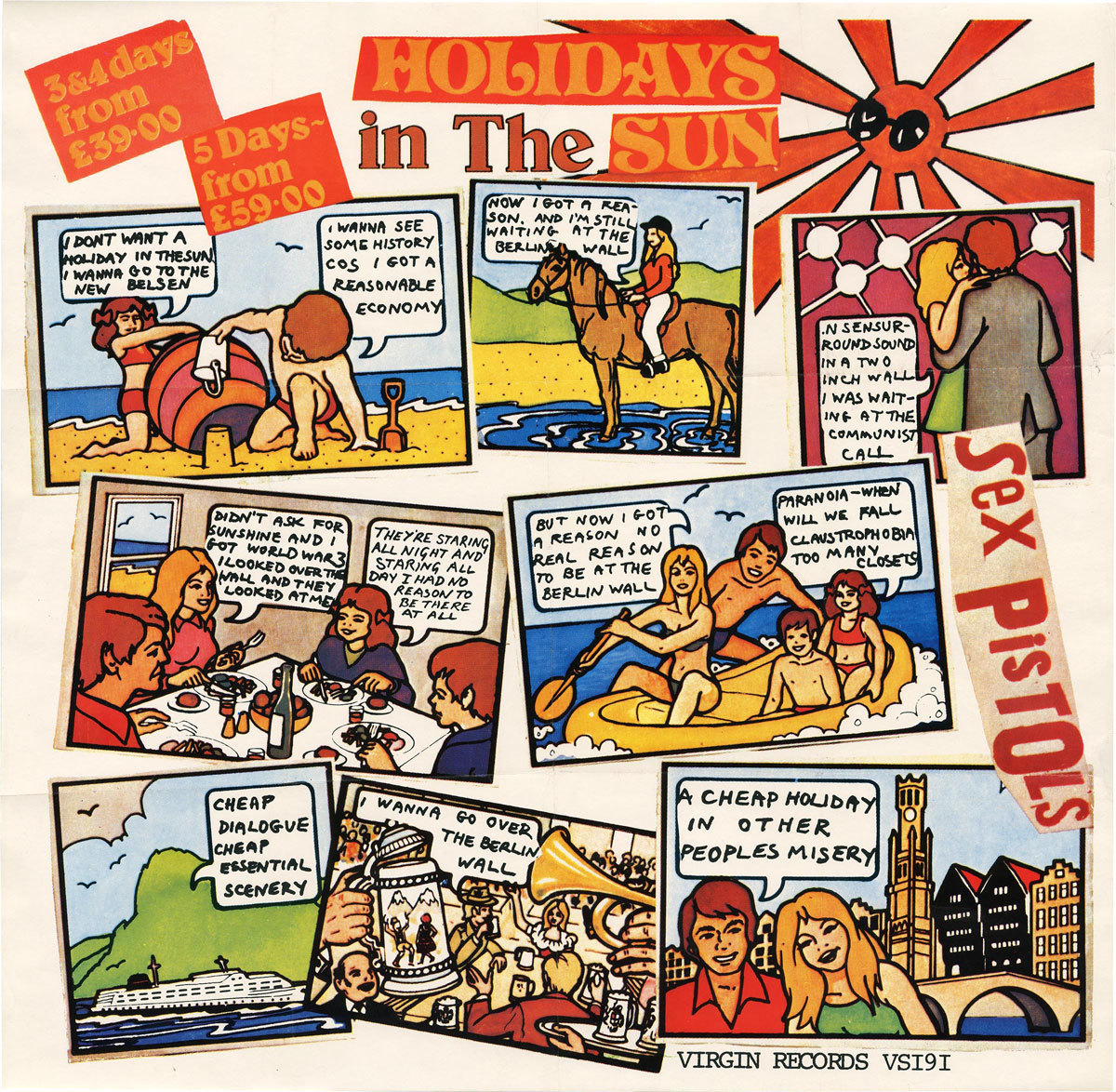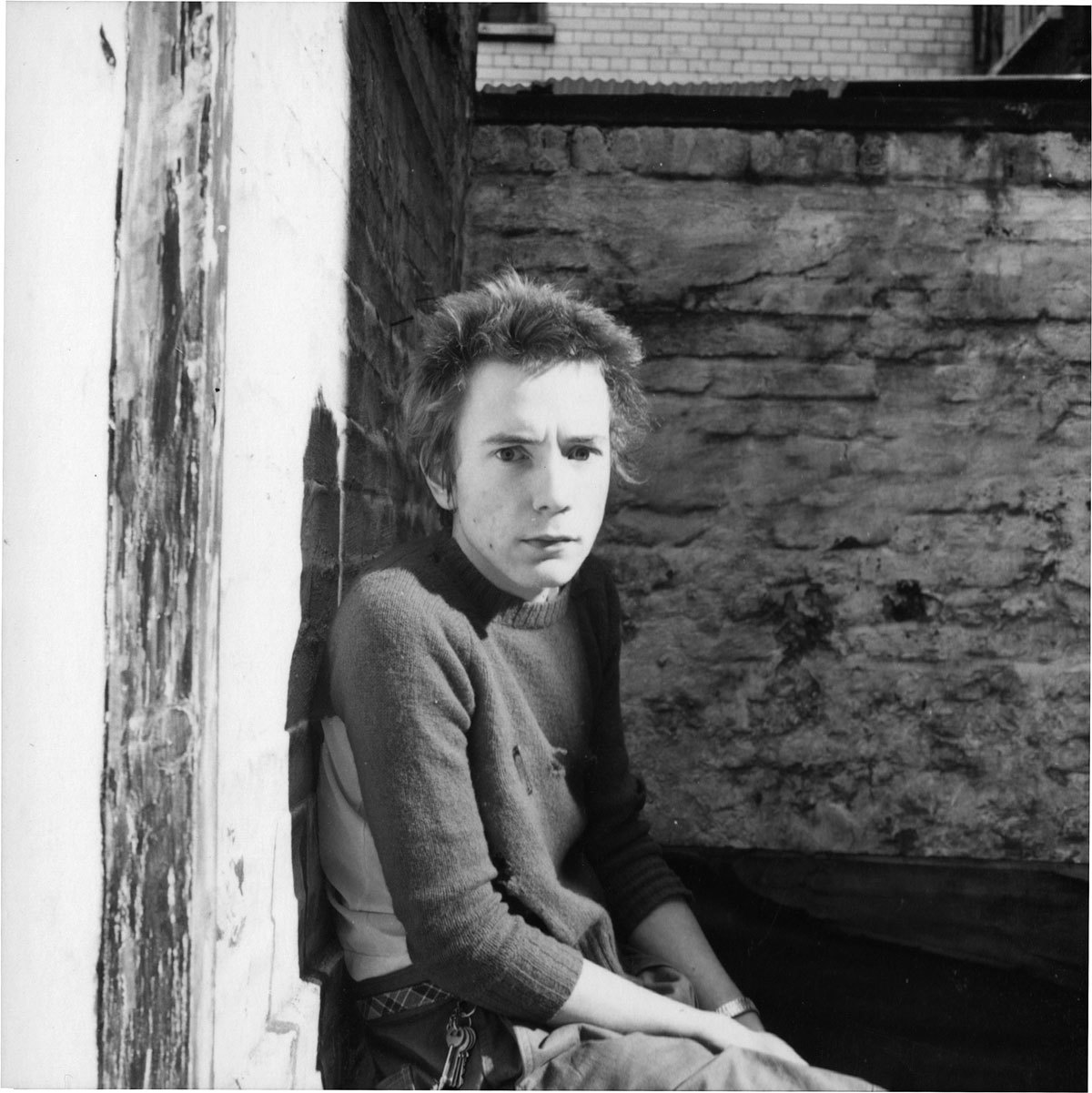God Save Sex Pistols is the ultimate guide to the work of the ultimate punk icons. Across 324 pages punk’s premiere historian Johan Kugelberg creates a visual record of the various ways the Pistols impacted modern culture. Not just another punk book or celebratory anniversary cash in, God Save Sex Pistols is the ultimate chronicle of the band’s brief, but big bang. Kugelberg places a particular focus on the band’s visual world: its posters, fliers, memorabilia, record sleeves, and iconography. The book compiles items of historical curiosity, such as the Christian anti-Pistols propaganda handed out during the group’s their ill-fated 78 US tour. There are rare interviews with the band culled from obscure fanzines, letters, notes, scribbled lyrics, legal documents, and intimate snapshots of the band. The aim is to tell the story of the Pistols, but also to chart their impact, and the seismic shift they made upon culture.

The book looks great. It’s such an incredible wealth of material that you’ve managed to collate.
I mean, it took five years to make! The material is culled from official collections, museums, archives, but also from private collections, from fanatical fans, people who allowed us to come and peruse their collections. We had thousands of images to use and a limited space to tell the story; we had to make every image we used count.
What was your initial idea for the book?
The Sex Pistols have a historical value — they’re a band that changed fashion, politics, and art, as well as music. Their cultural importance stretches from Argentina to Mexico to Singapore to the Philippines. Their impact is incredibly substantial. I’ve read all the great Sex Pistols books that existed, the great punk books. What I wanted to provide was a visual companion to that, to allow people think more about graphic design, art, style — how seismic the shifts the Pistols were catalysts for. It’s unbelievable, how much they changed.

Was it a difficult thing to create?
It was hard to do something new, to be honest, because it’s a story that’s been told so many times. We tried to get the viewpoint of not only the key players, but obscure, innocent bystanders, because their perspective adds so much to the story. The story of punk is as much the story of the fans as it is the story of bands, of people who became superstars.
I trained as a historian. The books, exhibitions, and the archives I work on are all concerned with post-WW2 counterculture and subculture. When you do this kind of documentation of culture on the margins, you have to maintain these very formal historian techniques, because the story itself is so fucking important. So you have to build the narrative in a way that’s transparent, so that someone who wasn’t there, who might be 20-years-old now, has like some means of getting into it. You need to get the imagination firing about underground culture and how it reflects in mainstream culture.
The books really made the impact of The Pistols clear; you see so many echoes of what they did still today.
I think the core legacy of punk is the diminishment of the distance between the self-starter impulse and its execution. So say you’re 15 right now, in London, and you’re like, “I want to start a band,” so you start a band, you learn to play the bass. Or you create a zine, you create your own fashion line. That distance has become shorter, that’s legacy of punk. And I think it’s cool that all of these people who use that punk instinct don’t know exactly where it comes from. Which is how cultural code works; it’s this snowballing, rolling, thing that people tap into it.

Do you think it’s possible for those of who didn’t live through punk to understand it? Does this book help us understand its impact?
Well I didn’t live through it either, I’m just too young, I got the echo of it. But I think what the book shows is maybe that punk was the last meta-tribe. What we see now is more like thousands of microtribes, and all of those microtribes have their own unique aesthetics, politics, patterns of life. Punk is an ongoing, seismic, reverberation through cultural consciousness. Society was much more closed-off when punk broke, and the people who were weird and different, all of those teen tribes, had a real hard time, especially finding other members of that tribe. That’s something that totally changed after punk, and is totally different now.
Are we ever in danger of over mythologizing punk’s impact? Or over-intellectualizing it?
But that’s the punk diaspora; the myriad voices that clash with each other, and from that new ideas will come out. If you start looking into the culture of the margins you’ll start to see where things overlap, and how from that, new ideas germinate. And it’s the same with debates that happen about punk now, new ideas germinate. You have the intellectual debates, and the emotional debates as well. The emotional debate is often driven by, quote unquote, the people who were there. I think the single most important thing we can do is to build these transparent narratives about what happened from the materials we have at our disposal, and then people can make up their own minds.
If you were there at a legendary Pistols shows in 1976, you should hopefully be able to enjoy this book in the same way as if you are 15 and you just got into it, or because you just love the graphic design. I don’t think the opinion of someone who was there is more valid than the opinion of a teenager right now who is inspired by these materials. In that dialogue, between those two opinions, things can happen.

Have you been following the controversies and celebrations around punk’s 40th anniversary?
It sounds pretentious, but I’ll say it: when people really started understanding Dada or blues music, or jazz, it was like 30 or 40 years after they broke. I think we’re going through that with punk now. A discussion about punk’s commercialization or watering down is always a valid discussion to be having, but we should remember where punk is still really happening in a way that’s totally removed from the anniversary stuff — 10,000 different kids making 10,000 different zines, forming bands, becoming artists, whatever has sparked the creative impulse to actually make people do things themselves. It’s the way people pick from and utilize the things that punk has passed down to us and made possible.
But anniversaries are arbitrary anyway, they become media events, As a historian, its my perspective, that it might actually take this long, it make actually take 30 or 40 years for the dust to settle and for us to really see the impact. The Sex Pistols’s historical importance was always clear as a media event, but now, maybe we can understand their importance as instigators of societal change. So in that case, fuck the anniversary, but celebrate the cultural change.
Is there one piece of memorabilia or artwork or image that’s your favorite, or that you think sums it up?
There’s a crappy, red poster from 1976, where they got the band name wrong; it just says Sex Pistol. It’s a piece of really bad, 70s graphic design. That to me is just perfect, because no one had ever seen this before, we unearthed it somewhere, it just showed up in a collection. Obviously it’s super rare, historically significant, but the clowny randomness of the graphic design mirrors how random and urgent the entire punk narrative was in 1976. I also loved the very first Pistols gig poster is slapped together and kind of comical. I love anything that shows the non-homogenous nature of the whole aesthetic of early punk. There’s probably like 2500 images we couldn’t use that are incredible, but I hope this book inspires people to make their own books, to make better books than mine!
Credits
Text Felix Petty
© GOD SAVE SEX PISTOLS edited by Johan Kugelberg with Jon Savage and Glenn Terry, published by Rizzoli, special edition released by Anthology Edition